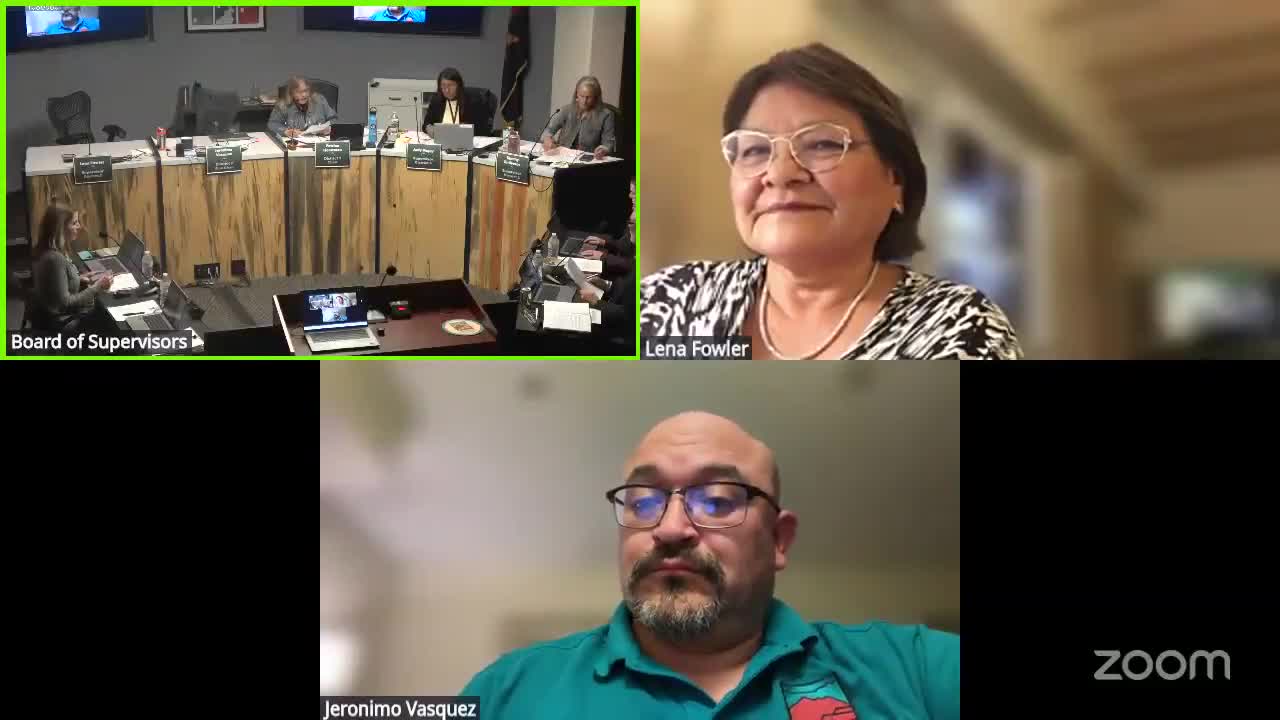Coconino supervisors approve up to $500,000 from stability fund to keep WIC services running during federal shutdown
Get AI-powered insights, summaries, and transcripts
Subscribe
Summary
The Board of Supervisors unanimously approved emergency transfers from the county—s Stability Fund Friday to sustain Women, Infants and Children (WIC) benefits and WIC staff while federal funding is paused, authorizing contracts and budget adjustments with Arizona Department of Health Services and the county health district.
The Coconino County Board of Supervisors voted unanimously Friday to use county Stability Fund dollars to maintain local WIC (Women, Infants and Children) food benefits and payroll while federal funds are paused during the federal government shutdown.
The board approved three related emergency actions: up to $400,000 to ADHS to maintain WIC benefits for November and December (item 8b); up to $100,000 to the county—s Health and Human Services district to keep seven WIC staff on payroll from Nov. 15 through Jan. 2 (item 8c); and an agreement authorizing the chair to sign a final contract with the Arizona Department of Health Services for the transfers (item 8d). The board voted unanimously on each motion.
The WIC food assistance program, funded through the U.S. Department of Agriculture and administered in Arizona by ADHS, provides nutrition benefits and education to pregnant people, infants and children up to age 4. Michelle Axland, director of Coconino County Health and Human Services, told the board the state will run out of food benefits funding at the end of October and could only staff WIC through Nov. 15 without county help. Axland said the county currently serves just under 1,900 families in WIC and that the state asked counties to consider bridging food costs while federal funding is restored.
"If the board was to consider covering the cost of November and December for infants only, that cost is about $61,832 per month," Axland said, reading county staff estimates. She told supervisors the monthly cost to fund both infants and noninfant participants would total about $162,000 per month, and the two-month program-level request to ADHS would not exceed $400,000.
Deputy County Attorney Angela Lane and county counsel worked with staff to draft motion language so the board could make a clear, time-limited commitment. Lane recommended specifying the dollar amount and the months covered to keep the county—s obligation bounded.
Supervisor Ontiveros moved the motion for item 8b as read by counsel; Supervisor Vasquez seconded. The motion to authorize the ADHS transfer for WIC benefits "exclusively for the purpose of maintaining continuity of service and WIC benefits to Coconino County infants and noninfants" for November and December passed unanimously.
On wages and benefits (item 8c), the board approved a separate budget adjustment of up to $100,000 to cover payroll and employer costs for seven HHS employees assigned to WIC from Nov. 15, 2025, through Jan. 2, 2026. County finance staff asked the board to adopt a not-to-exceed number because payroll costs can vary per pay period; the board approved the amended motion by unanimous vote.
Finally, the board authorized a formal agreement with ADHS (item 8d) to accept and transfer the stability funds to the state for the limited purpose of maintaining WIC benefits in the county and to permit the board chair to sign the finalized contract. The motion excluded any transfer-ins from other counties.
Supervisors voiced a mix of urgency and caution. Supervisor Vasquez said he favored covering the two months to avoid recurring emergency votes and to give community partners time to assist families if the federal shutdown continued. Supervisor Fowler said the Stability Fund exists for such contingencies and expressed support for the county—s targeted use. Several supervisors stressed the county—s limited fiscal capacity and emphasized that the action was an emergency, short-term measure rather than a permanent shift of federal responsibility to the county.
Axland described local operational details: ADHS manages e-cards that distribute WIC food benefits; state funds could cover staff through Nov. 15 but not the food cards beyond Oct. 31 without additional support; and the county—s WIC team includes caseworkers, intake staff, a dietitian and breastfeeding coaches. She recommended the county accept newborns and not accept inter-county transfer cases while county funds are used, to prioritize local residents.
Supervisor Begay and other board members suggested coordinating with local nonprofits and food banks and increasing public outreach to inform families about the temporary funding and about community donation options while the federal shutdown persists.
The board recorded each action as an emergency, time-limited measure tied to specific months and capped dollar amounts. Officials said they would continue to monitor federal action, coordinate with state and nonprofit partners, and return to the board for any further commitments.
Ending
The board directed staff to notify WIC participants and community partners immediately that the county would fund WIC benefits for November and December and pay identified WIC staff through Jan. 2, 2026. Supervisors and staff said they would continue to pursue state and federal remedies and to seek community help if the shutdown extended beyond the authorized period.
